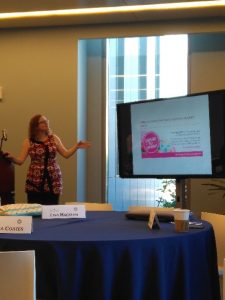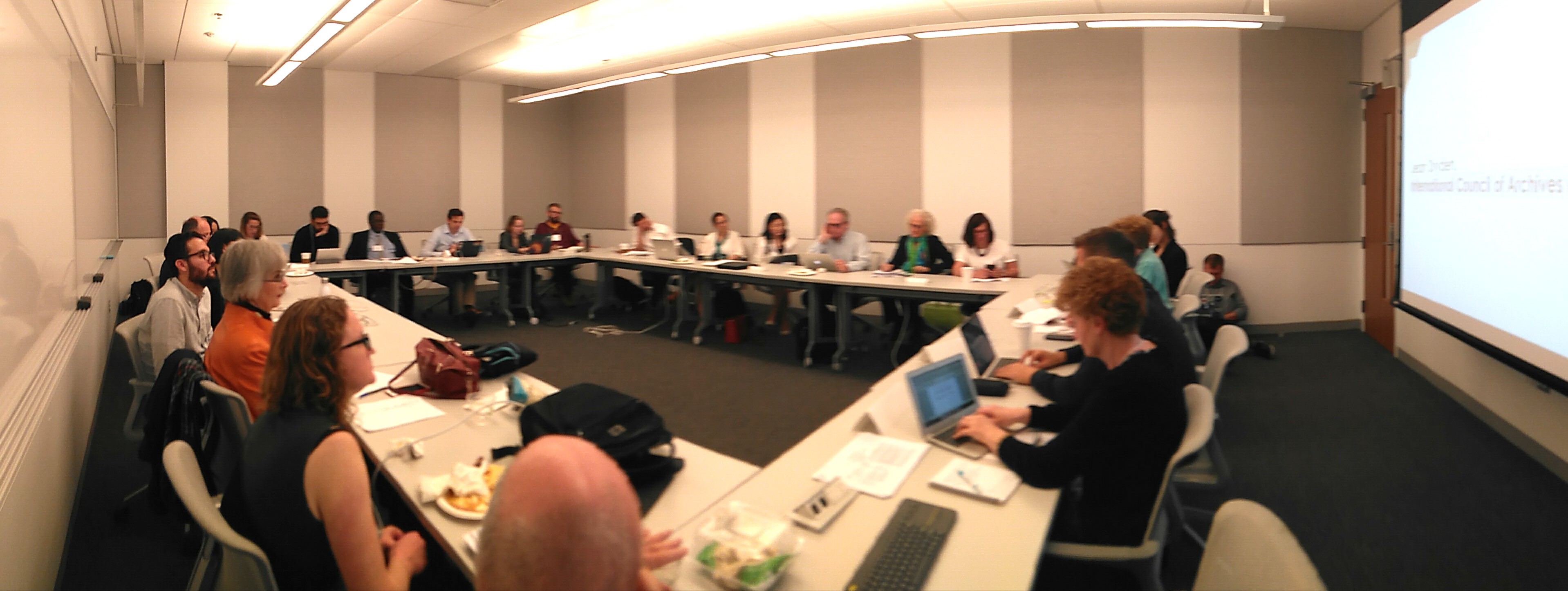[International Federation of Library Associations, Link (CC-BY)] Seven years ago, at the first Global Congress, the Washington Declaration was adopted: a text by civil society that underlines the importance of the public interest within intellectual property conversations. It also makes several recommendations to ensure, for instance, that exceptions and limitations to copyright are strengthened, that the public domain’s openness is valued, and that cultural creativity is supported. Now, a couple of years later, much progress had been made but there is much left to do to achieve its goals.
The Global Congress contributes to that. It is a forum for discussion on the intersection between intellectual property (copyright, patents, etc.) and the public interest. It explores how to move this topic forward by bringing together many different sectors: scholars, cultural heritage institutions, educators, human rights and public domain advocates, and many others. All understand intellectual property as a tool at the service of the public interest.
Workshops & sessions
The congress kicked off with a workshop focused on advocacy at the World Intellectual Property Organisation (WIPO). At WIPO, together with efforts to push for work on exceptions and limitations to copyright for libraries, archives and museums, a group of people involved in education, including researchers at PIJIP, Education International and Communia, have drafted a Treaty on limitations and exceptions for education and research activities that is going to be presented to WIPO delegates. Participants to the workshop contributed to the draft, which is now final and open to endorsements.
The second day focused on a similar workshop, but around advocacy on copyright reforms at the national level. Participants exchanged views on common trends and possible strategies, and mapped some of the issues in an open google doc. In advocacy, some argued that while empirical evidence was needed, specific stories were the best tool to convince decisionmakers. Trade agreements were also part of the conversation, with the worry that they serve as a tool to bring bad provisions (e.g. long copyright terms such as in Mexico, where it is life of the author plus one hundred years) to other countries.
The workshops were followed by three days with very interesting sessions (and difficult choices when having to decide which to attend). Although there was a parallel track on patents with a strong focus on access to medicines, I attended many copyright and privacy-related sessions. It was a great way to find out about many initiatives and current research currently undertaken around the world in several topics that either concern or could potentially concern libraries. Here are some highlights:
- Jessica Coates, Dylan Gilbert, Lisa Macklem and Ronan Deazley explained the struggle in their respective legislations to end with perpetual copyright over unpublished works. While Australia, Canada and the US have succeeded, it is not the case for the UK, where an attempt to address this situation did not prosper due to concerns from the content industry (which were not made public). They showed the absurdity of such provisions with an example of a table dating from 57 A.D. that is still in copyright.

- Efforts to change legislation need to be sustained in evidence. CREATe, a centre for copyright and new business models in the creative economy based in Glasgow, is running several projects focused on open access, intermediaries and platforms, human rights and the public interest, etc. Thy have also built a Copyright Evidence Wiki platform that catalogues existing empirical studies on copyright (so far including a total of 656 studies) in an organised, transparent and accessible way.
- Even though copyright is not perfect, it gives room for some activities. This positive approach is the base of Copyrightuser.org, which presents in an interactive and simple what a user can do under UK copyright law. A good example is the series “The game is on!”, which explore key copyright questions while Sherlock Holmes leads an investigation.
- Miguel Morachimo from Hiperderecho talked about progress being made in Peru on open access since the adoption of a law in 2013 and the development of the National Digital Science, Technology and Innovation OA repository. This central repository gathers all publicly (totally or partially) funded research in the country, provided by public universities’ institutional repositories through the RENARE network.
- Thomas Margoni presented OpenMinTed, a project that aims at creating a registry for text and data mining services and tools, to encourage open science and innovation.
- The education sector also gathered people to map the openness of user rights across the world through a hack-a-thon, using a new public
- A group of researchers from the Federal University of Paraná in Brazil presented the challenges that authors in the music scene are facing with the lack of revenues coming from collective management societies, as well as the high number of intermediaries in the production and sales chain. They are therefore developing a tool using blockchain that would allow authors to self-manage the publication, distribution, sales and collection of revenues for their own creations. If such mechanisms evolve, who knows whether it would also revolution the literary scene?
A world tour of library, archive and museum copyright reforms

IFLA hosted a session that took participants around the world by the hands of Teresa Hackett (EIFL), Jean Dryden (ICA), Mariana Valente (InternetLab), Evelin Heidel (Creative Commons) and Paul Keller (Kennisland). Each panellist looked at current copyright reforms in their respective regions from the perspective of libraries, archives and museums, and shared trends they are observing.
Many pointed out the general preference for licensing over exceptions and limitations to access content. It is the case in Europe, for instance, with a possible exception for eLending not having made it through in the current copyright reform, which means that public lending of digital content needs to rely on licensing agreements. It is also the case in Malawi, where extended collective licensing is on the table.
In copyright reforms, libraries, archives and museums are often stuck in the middle. Content producers and tech companies have complete opposite positions, with cultural heritage institutions defending some flexibility and opening of copyright, but from a moderate perspective. While this makes our ask sound rather reasonable, challenges arise around all the attention being focused on bigger debates, leaving the cultural heritage questions for last or even for bargain.
The need for a better copyright framework, specially to ensure preservation of knowledge, has been part of the discussion lately in Brazil, following the loss of important pieces of cultural heritage due to the fire in Brazil’s National Museum in Rio de Janeiro. Advocates argued that if copyright had not been on the way, a much larger part of the collections have been preserved through digital copies. There is currently no exception in Brazilian copyright law allowing for the making of copies for the purpose of preservation.
Something that was also common across the sectors and in several regions was the lack of copyright specialist within cultural heritage institutions. Many seek external advice or resolve copyright issues the best they can with the resources they have, but more knowledge on the matter would be a significant improvement for cultural heritage institutions. A very timely IFLA Statement on Copyright Literacy also insists on the need for better copyright education and sets recommendations to library associations and governments.
In an area where there is often concern on whether enough progress is being made, spending a week with over 400 people from all over the world is a breath of fresh air. There is indeed progress, and many success stories, that show how intellectual property is closer and closer to being a tool at the service of the public interest.
More information on who participated at the Congress and the sessions that took place is available in the Congress website.

![Documentary Filmmakers Association (DFA) Comments on South Africa’s Copyright Amendment Bill [B13-2017]](https://infojustice.org/wp-content/themes/Extra/images/post-format-thumb-text.svg)


